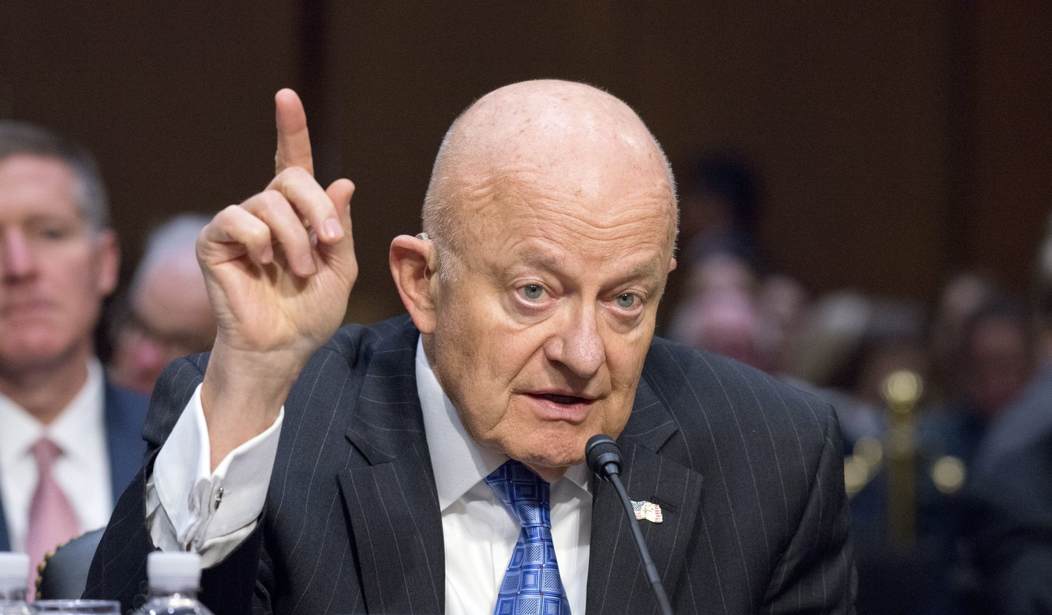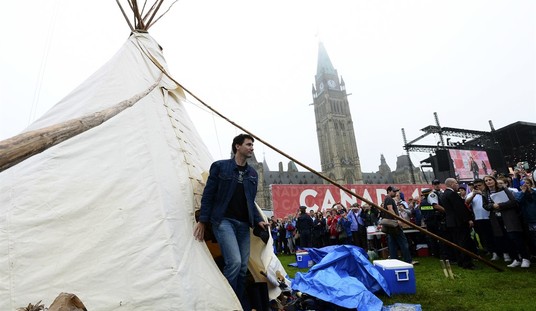Former Director of National Intelligence James Clapper said Wednesday that “fake” is not “an accurate characterization for the entirety” of the Steele dossier, and “what has not been corroborated has yet to be determined.”
“When we did our Intelligence Committee assessment, we were aware that the — there had been research done and that some Republican candidates as a matter of fact had contracted through I think Fusion GPS to obtain what it later became much known as a dossier,” Clapper told CNN. “That work, as I understand, was handed off later to the DNC and the Clinton campaign. So I think this is something that bears an audit trail by experts in finances that can track the auditing for this, and to see who was responsible for it.”
“I think with respect to the dossier itself, the key thing is doesn’t matter who paid for it. It’s what the dossier said and the extent to which it was — it’s corroborated or not. We had some concerns about it from the standpoint of its sourcing which we couldn’t corroborate,” he added. “But at the same time, some of the substantive content, not all of it, but some of the substantive content of the dossier, we were able to corroborate in our Intelligence Community assessment which from other sources in which we had very high confidence to it.”
The effort behind the dossier began as a “never Trump” GOP-funded opposition research project during the Republican primaries. The donor, PAC or campaign that first retained Fusion GPS has not been revealed.
After Trump secured the presidential nomination, the GOPs behind the Fusion GPS oppo effort dropped the project. It was picked up by the DNC and the Clinton campaign through law firm Perkins Coie. Fusion GPS hired former MI6 officer Christopher Steele to gather information surrounding Trump’s Russia connections.
The resulting dossier was passed to Sen. John McCain (R-Ariz.), who turned it over to former FBI Director James Comey after Election Day. McCain denies passing the dossier to BuzzFeed, which published it in early January. Hillary Clinton reportedly learned about the dossier after it was published online.
To this date, the intelligence community has not publicly corroborated how much of the dossier is true. The document was not included in the unclassified version of the Jan. 6 IC assessment that found “Russian President Vladimir Putin ordered an influence campaign in 2016 aimed at the US presidential election” and “Putin and the Russian Government developed a clear preference for President-elect Trump.”
Investigators for special counsel Robert Mueller met with Steele over the summer.
Trump branded the dossier “fake” while speaking with reporters Wednesday. “I think it’s very sad what they’ve done with this fake dossier,” he said. “It was made up, and I understand they paid a tremendous amount of money, and Hillary Clinton always denied it.”
House Intelligence Committee member Jackie Speier (D-Calif.) told MSNBC on Wednesday that the 35-page dossier is not the basis of her panel’s investigation into whether there was collusion between Russia and the Trump campaign.
“It really is a separate and really not a very specific area that we’re looking at,” she said. “That’s something that I would think the Mueller operation through the special counsel is looking at. But we really haven’t invested time or energy into it.”
Senate Intelligence Committee Chairman Richard Burr (R-N.C.) said earlier this month that his panel’s inquiry into Russia’s campaign influence operation and possible collusion “has expanded slightly” as they were still trying to speak to Steele.
“The committee cannot really decide the credibility of the dossier without understanding things like who paid for it, who are your sources and sub-sources,” Burr explained. “We are investigating a very expansive network of Russian interference in U.S. elections. And though we have been incredibly enlightened at our ability to rebuild backwards the Steele dossier up to a certain date, getting past that point has been somewhat impossible… I don’t think we’re going to find any intelligence products that unlock that key.”
“My hope is that Mr. Steele will make a decision to meet with either or both so that we can hear his side of it versus for us to depict in our findings what his intent or what his actions were,” he added.








Join the conversation as a VIP Member